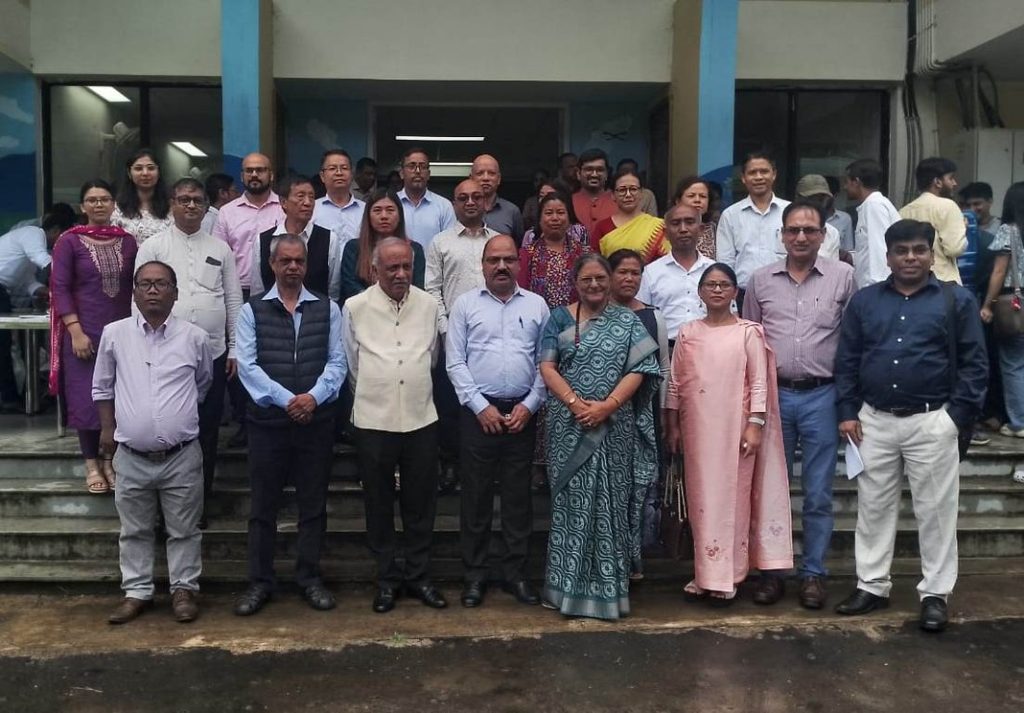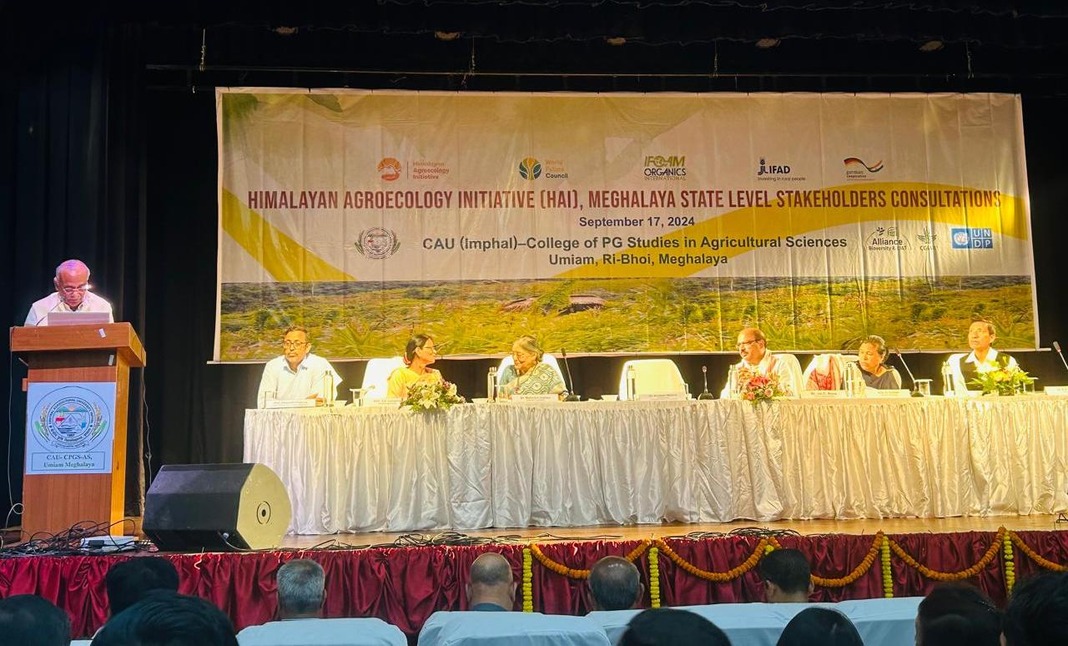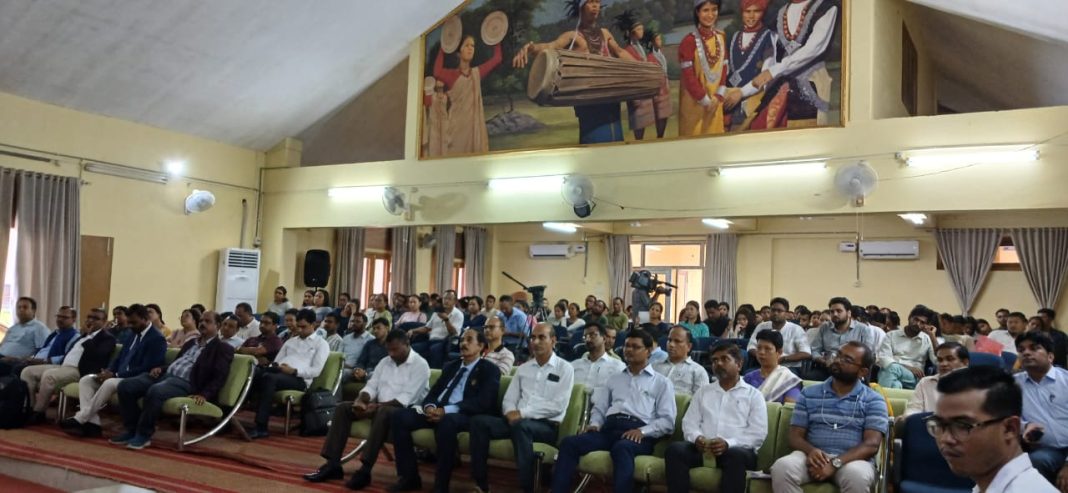Shillong, Sep 19: Experts from different fields at the Himalayan Agroecology Initiative have underscored the importance of agro-ecology in tackling regional challenges such as climate change, biodiversity loss, and food insecurity.
The Himalayan Agroecology Initiative (HAI) held a state-level stakeholders consultation meeting at the College of Post Graduate Studies in Agricultural Sciences (CAU-Imphal) in Umiam, Meghalaya on Wednesday. Organized by Alliance of Biodiversity International and CIAT, New Delhi, the event was supported by national and international agencies, including the World Future Council, IFOAM Organics International, IFAD, and the German Agency for International Cooperation (GIZ).
The event commenced with a formal inauguration led by Dr. S. V. Ngachan, Senior Consultant in Meghalaya. Dr. Anupam Mishra, Vice Chancellor of Central Agricultural University Imphal, delivered the keynote address, emphasizing the critical role of the Himalayas in regional agricultural practices and the need for effective extension strategies for Himalayan agroecology in North East India.
Participants engaged in extensive discussions, identifying key issues and exploring solutions to advance sustainable agricultural development in Meghalaya. The parallel group sessions provided an opportunity for in-depth analysis of specific topics, with participants from line departments, food processing sectors, and farmer groups sharing their insights and experiences.

Dr. Dhrupad Choudhury, a freelance researcher, and Dr. Parul Thapa, Technical Advisor at GIZ-India, delivered thought-provoking addresses that highlighted agro-ecology’s role in enhancing biodiversity conservation and ensuring food security. Their contributions underscored the importance of integrating agro-ecological principles into local farming practices to build resilience against environmental challenges.
The meet also emphasized the need for collaborative efforts among government agencies, researchers, farmers, and other stakeholders to implement effective agro-ecological practices.
The consultation meeting also spotlighted the critical need for a unified approach to agro-ecological development, advocating for stronger collaboration between various stakeholders. The discussions revealed that a collective effort is essential for addressing the complex issues facing the region’s agriculture and fostering sustainable practices that benefit both the environment and local communities.
Participants identified key challenges and opportunities related to agro-ecological development in the region, providing valuable insights for future initiatives.
The event concluded with a summary of key takeaways and future action points. Dr. J. Rana, Country Representative for Alliance of Biodiversity and CIAT, and Prof. Dwipendra Thakuria, Dean of CAU-CPGSAS, provided closing remarks that emphasized the significance of the insights gained during the meet. They reaffirmed the commitment to leveraging these insights to inform policy decisions, research initiatives, and farmer training programs.
The meeting fostered valuable knowledge sharing, networking, and partnership building, setting the stage for a more sustainable and resilient agricultural future in Meghalaya.




